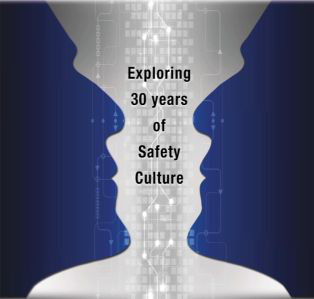Speaker
Synopsis
The popularity of the concept of safety culture has provided useful support for deterministic approaches to safety. The inclusion of ‘beyond design’ cases in severe accident management guidelines opened up the debate on the precautionary principle. However, a reflexive and vibrant safety culture should not stop there: even the most precautionary measures can prove to be lacking.
Our discussion therefore focuses on the management of radical disruption caused by the collapse of pre-established frameworks for action. It goes beyond any objectivist consideration of the necessary conditions for rational decision-making in the event of an accident. Here, we are interested in ‘extreme situations’. Specifically, a management situation faced by operators who, should they lose control of their production facility, must take action despite the hazards and the lack of critical resources. They must respond to a social emergency that, if not satisfactorily resolved, will lead to damage on a scale never before seen. The Fukushima Dai Ichi accident is a useful case study of such a scenario. The short period from 11 to 15 March 2011 contains all of the ingredients of an extreme situation that was the result of an unexpected event.
From the perspective of the management of engineering organizations, the question of entry into resilience arises. Prior to any normative prescription, this concerns the poorly-understood mechanisms through which collective action develops in response to hazards and social pressure. In particular we study the sensemaking process through which actors regain control of the situation, and create an informal and ephemeral organizational kernel. The issue is addressed in terms of the human being as a whole, a subject whose actions are consistent with a defined purpose and affects and who is endowed with a representational capacity.
Our epistemic perspective is constructivist and relies on the latest theoretical developments related to sensemaking. In terms of methodology, we take an interdisciplinary approach driven by a narrative analysis tool for designing cognitive models, which is useful for the analysis and exploration of phenomena. The approach is comparative and rooted in the contextual examination of cases; theory is developed using a process that iterates between empirical data and concepts from a broad range of disciplines (sociology, history, philosophy, science and technology studies).
Our work shows the need to go beyond a purely cognitive sensemaking approach, and integrate the macro and meso scales, the material context and the embodied dimension of the making of sense. We propose an interpretative model that integrates these aspects and captures the transition from a ‘normal’ situation to a crisis. We also identify some initial lessons in terms of the management of extreme situations and propose some avenues for future research.
| Country or International Agency | France |
|---|

